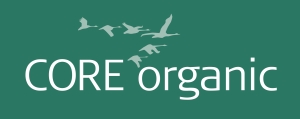The goal of this WP is to develop new fertilisation strategies in organic fruit orchards with a holistic approach based on the use of new organic fertilizers from recycled materials, leguminous intercrops in the inter-row and microbial consortia. New fertilisation strategies will be developed and an integral assessment of their impact on agronomic parameters, nutrient budgets and nutrient efficiencies (soil fertility, cross interaction with associated practices, main and secondary crops yield and quality) will be performed. Some incubation trials will study nitrogen dynamics of various organic fertilizers with the aim to find fast nitrogen releasing substances that could be used in organic agriculture at the beginning of the season, when the nitrogen demand is higher. The fertilizers should derive from regional by-products, to reduce the waste production and to increase the recycling of substances and materials, as suggested by the circular economy.
The field trials will take place in Bulgaria, Poland and Germany in intensive apple orchards.
In WP 4.1. products based on mycorrhizal fungi and rhizosphere bacteria as well as clover grass pellets, clover grass silage, legume grits, biogas digestates and leaf applications of compost-based products will be tested. N dynamics will be assessed via Nmin analyses. Sulphur dynamics depending on fertilization strategy and crop protection will be also determined and nutrient efficiencies will be calculated. The impact of the fertilisers on yield, fruit quality and plant health will be evaluated.
The fertilisation strategies developed in Task 4.1. will be tested also with on-farm-trials in cooperation with the different regional organic association (e.g. FÖKO for Germany) and the local extension services (Task 4.2). We aim to adapt these fertilization strategies to “real-world” conditions in cooperation with the participating farmers. These farmers will choose which of the different fertilization strategies they want to use within their farming system. Common soil and plant parameters will be assessed. The target crop is apple.
The thoroughly evaluation of data gathered in all field trials of WP4 will be carried out and allow an integrated assessment of the plant agronomic and soil parameters, reflecting results from the trials performed in different climates, soils and environments across the six European countries (Task 4.3). This task will allow a qualitative ‘mapping’ of the local relevance, quality and agronomic impact of regionally available waste material fertilizers and legumes as well as their effectiveness and usefulness in fertilization management for different organic perennial cropping systems. The methods applied for this task include nutrient budgeting, nutrient flow analyses, statistical analyses and scenario development.
